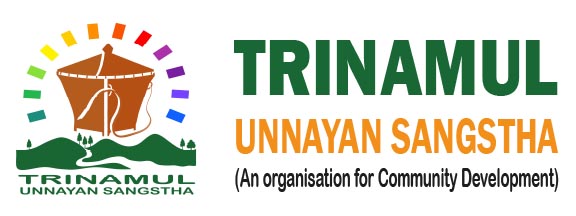Project Name: Hygiene Promotion, Sanitation & Safe Water Supply Project (HYSAWA)
Donor: DANIDA and Government of Bangladesh
Total Budget: Tk 24,96,373
Staff: 11 (nine male, two female)
Duration: October 2009 to December 2010
Working Area: 50 villages in Khagrachari Sadar Upazilla and 50 villages in Mohalchari Upazilla
Participants: 776 (male 510, female 266.
HYSAWA works with the poorest of the poor; their status means they are more at risk of the health problems caused by unhygienic practices and the lack of access to safe water and sanitation.
Project Purpose: To improve the health of peoples of the Chittagong Hill Tracts through improved hygiene, sanitation, and safe water practices and provisions'
Project objectives include:
•'To increase awareness for improved hygiene behavioural patterns and sanitation promotion'
•'To increase access to water supply services and facilities, especially for the underserved communities in the Chittagong Hill Tracts'
Project Summary: HYSAWA works to mobilise communities so they are aware of, and eager to take action on, the challenges poor water and sanitation practices and facilities create in their lives.
In 100 villages, we have supported the formation of community-based organisations, responsible for tracking and encouraging changes in village behaviour. TUS holds monthly courtyard meetings in each village and arranges regular awareness-raising events, helping communities to increase their understanding of safe water, sanitation and hygiene practices, and take steps to improve their health. HYSAWA staff also arrange additional awareness-raising events amongst communities, including ‘miking’ in two Upazilas, and games and discussion sessions in Khagrachari Sadar and Maisechari Unions involving school children, Union Parishad members, villagers, and members of community-based organisations, to mark Bangladesh’s Sanitation Month in October 2010.
So far, TUS staff have worked to train the members of the community organisations in leadership (202 participants, 149 male and 53 female), and gender sensitivity (201 participants, 108 male and 93 female), helping them to develop the skills and knowledge they need to run their groups effectively. The organisations meet every month, and with support from TUS, they identify the technology and changes needed so their community has access to, and uses, safe drinking water and sanitation facilities.
Through HYSAWA, TUS has also oriented 130 local leaders , including mouza headmen and village karbari, to increase their understanding of their duties and leadership roles, and to motivate them to use their positions take action on sanitation and safe water in their villages.
In each of the ten Unions in which HYSAWA works, TUS has organised training for Union-based ‘WatSan Committees’, which include local Union Parishad Chairmen, members and community representatives. Ten orientations have been held, with a total of 190 participants (149 male and 41 female). The trainings focused on raising the committees’ awareness of their roles in villages and Unions, and encouraged them to motivate communities to change their water and sanitation behaviours.
TUS recognises that awareness-raising activities are not enough to improve people’s health. Communities are also need to be able to access the safe water and sanitation facilities they deserve. In each of the ten Unions in which HYSAWA works, TUS organised trainings on advocacy for160 Union Parishad members and local headmen (129 male and 31 female). The trainings aimed to encourage the participants to raise their voices on water and sanitation issues, and to increase their understanding of the facilities available from government, and the ways in which they can ensure villages receive the resources they are entitled to.
In addition, with TUS support, 62 tube-wells, ring-wells and water pumps have now been installed in 52 villages. With the help of these new technologies, more than 550 families are easily able to access safe drinking water, enabling them to save time in water collection, reduce their vulnerability to waterborne diseases, and improve their health. HYSAWA staff also provide training on the maintenance of the equipment to one male and one female representative of the villages’ community-based organisations, to ensure the new technologies can continue to be used in the future.
Reference Contact Details:
Krishna Chandra Chakma (Project Director)
CHTRD Rest House (Ground Floor)
North Kalindipur
Rangamati Telephone: 0351-62810

